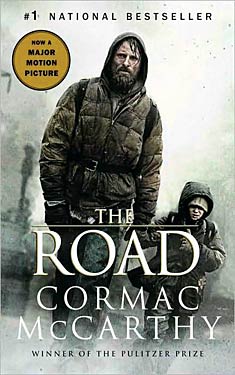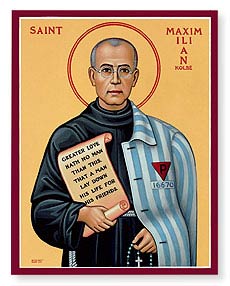What a Long, Strange Trip It’s Been
 If I asked you to name the most important science fiction film of 2009, what would you answer?
If I asked you to name the most important science fiction film of 2009, what would you answer?
Moon? District 9? Avatar?
Tough question, I know. Each has, in its way, something worthy to advocate for the title of 2009’s most significant genre film.
In a year loaded with sci fi pictures (such as Star Trek, Watchmen, Pandorum, Terminator Salvation, 2012, Gamer, Surrogates, and on and on), it’s the ones that truly drive toward a real, authentic human story that stay with us the most, especially Moon and District 9.
But for my money, the answer is not the personal tragedy of Moon. Or the social commentary of District 9. Or the grand spectacle of Avatar.
The most deeply felt and important science fiction film of 2009 is simply The Road.
If you’re not familiar with The Road, it stars Viggo Mortensen as a father who, along with his ten year old son, is travelling through the post-apocalypse wasteland that was once America in an effort to head south toward the futile hope for greener pastures. In this grim landscape where all the animals and vegetation have died off (as well as most of human civilization – at least, the better parts), Viggo and the boy contend with the constant specter of starvation and roving bands of cannibals.
Alright, I know the word “apocalypse” probably caught your eye (and I’m sure “cannibals” didn’t go unnoticed, either), and you likely already started forming some opinions. Let me stop you in your tracks. This is not The Road Warrior. Or A Boy and His Dog. Or any of the other dozen or so apocalyptic wasteland films that might jump to mind.

The Road is something completely and entirely different.
I’ve seen some reviews that spoke of The Road’s echoes of Samuel Beckett’s Waiting for Godot, and with the ashen landscape that Viggo (aka The Man) and his son The Boy are immersed in, it’s easy to see that. And I believe I saw at least one review where Albert Camus was mentioned, and I had already myself come to the conclusion that The Plague could be a possible kindred spirit. But in considering The Road for a few days now, I think the closest literary equivalent for the film (besides its own Cormac McCarthy source material of the same name) would have to be Elie Wiesel’s Night.
Night is of course Wiesel’s famous memoir of his and his father Shlomo’s decent into the hell of Auschwitz – the journey of a father and son fording a wasteland, beset on all sides by extreme human depravity. 
I see The Road as a photographic negative of Night – in Night, the story is told from the son’s point of view. In The Road, it is told from the father’s. In both cases, the protagonist ties his meager hope for retaining a sense of humanity amidst the direst conditions imaginable through the constant action of trying to salvage the life of a loved one.
In both narratives, the most intimate of human relationships – that of a parent and a child, the wellspring of future hope and promise – is set in direct opposition to a panorama of agony and negation. The landscapes our heroes traverse are populated with monsters who happen to be people – not aliens or zombies or whatever – just people.
One scene in The Road confirmed this for me. Viggo and the boy narrowly escape a country estate where a group of cannibals has taken up homestead. The camera zooms in on the cannibals as they come out on their porch, looking to the nearby woods for any sign of the escapees. And the most remarkable thing – the cannibals look exactly like you. And like me. Not particularly weird or freaky. Not Leatherface or what have you. Regular people.
John Hillcoat (the film’s director) seemed to be making the point, “Yes, they’re just folks.”
(I seem to recall reading something about George Romero’s Night of the Living Dead where Romero said that the reason his zombies were so scary is that they were your neighbors. Too true.)
The resounding brutality of Night and The Road germinates from within the human heart and its failure, on a massive scale, to love its fellow human being. On these stages, the parent-child bond is all the more poignant and amplified when set in counterpoint.
 In such worlds where everything is grief and suffering and despair, the question is not would you die for your loved one, but rather would you live for them? In The Road the Boy becomes his father’s sole reason for living, and the tenderness and love with which the father struggles to keep his son alive in so harsh a reality is what drives the film. The most heroic act that Viggo performs in the film is to love his son. The best stories are not about “out there” but rather about “in here,” and that is why I think The Road is the most significant genre film of 2009.
In such worlds where everything is grief and suffering and despair, the question is not would you die for your loved one, but rather would you live for them? In The Road the Boy becomes his father’s sole reason for living, and the tenderness and love with which the father struggles to keep his son alive in so harsh a reality is what drives the film. The most heroic act that Viggo performs in the film is to love his son. The best stories are not about “out there” but rather about “in here,” and that is why I think The Road is the most significant genre film of 2009.
As an aside, and not at all by my own design, I started writing this piece last Sunday, which was the Feast of the Assumption of the Blessed Virgin Mary, the most famous parent in the history of mankind. It so happened that on that day, my wife shared with me a daily reflection written by St. Maximilian Kolbe, a Catholic priest and great devotee of Our Lady who famously gave his life in Auschwitz so as to spare the life of a fellow prisoner. (The prisoner, a husband and father of two, had cried out for his family when he was chosen to be executed, prompting St. Kolbe to successfully petition to take his place in the death chamber.)
In the daily reflection taken from an essay that St. Kolbe had written before the war, he remarked, “… the love of parents towards their children is superior to any other love.” I share this anecdote because the coincidence of his remark being shared with me on Mary’s Feast day when I contemplated the parental love of The Road (and recalled the heartbreaking witness of Night)is too strong not to share it.



















 Full Details
Full Details


1 Comment
I liked the story of The Road quite a lot, but didn’t care for the film adaptation. That’s not to say that the film was particularly bad – it still retained enough of the novel’s greatness to fill one with awe – but there was something about McCarthy’s urtext that didn’t make the transition. I wrote about this briefly in my review (http://thephotoplay.com/blog/2009/12/the-road/), but reading your post makes me think I need to revisit and reconsider the film.
Sorry, the comment form is closed at this time.